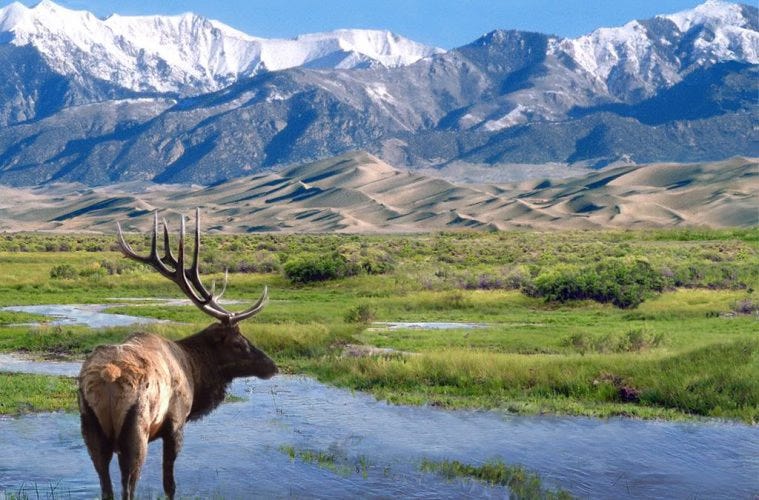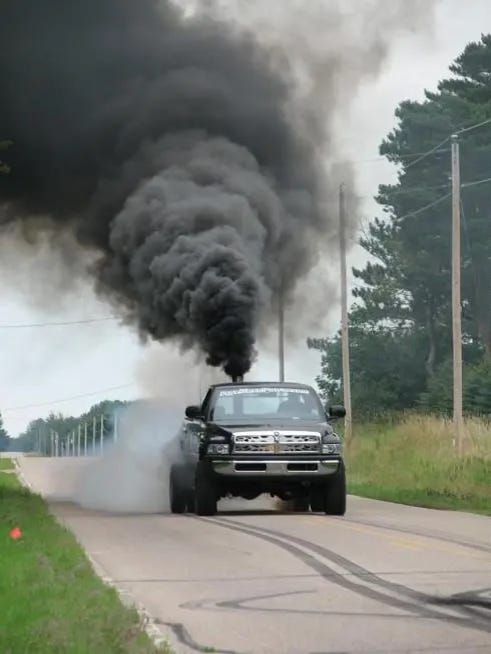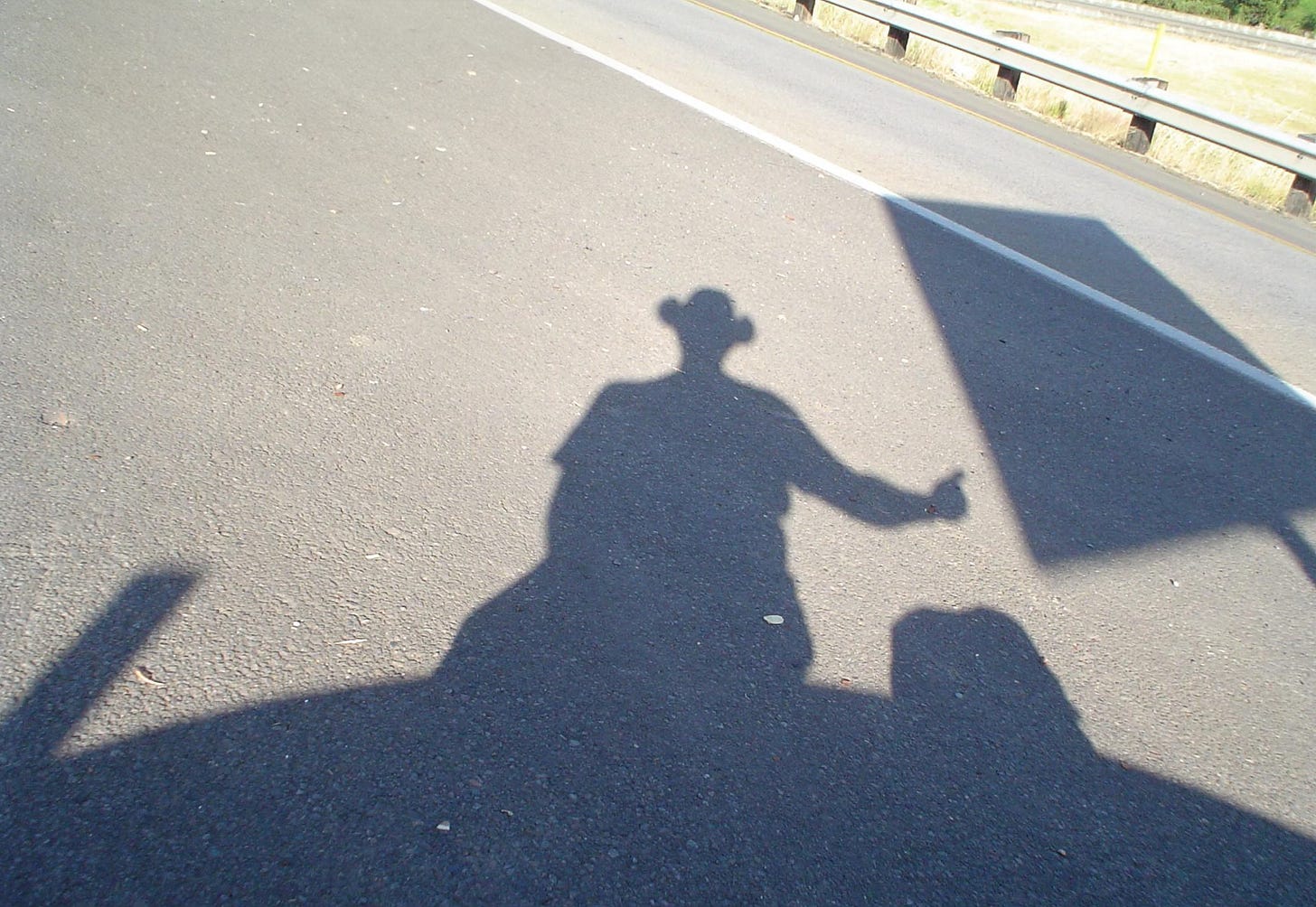This Land is Your Land, This Land is My Land: So Why is the Environment so Polarizing? (Part I)
What I learned about while living off the grid with mountain men and women in Montana - and how that epiphany might help us come together to slow climate change and protect our shared environment

Republicans and Democrats, conservatives and liberals, it doesn’t matter where on the political spectrum you or anyone falls; we all intuitively understand that we need clean water to live, clean air to breathe, and a functioning, thriving environment for both things to exist. Not just for now but for future generations, our kids and their kids, and so on. Why, then, is being “pro-environment” considered the purview of “Lefties” and Democrats? Why do so many Republicans believe that supporting renewable energy, for example, means that they are betraying conservative principles, and why do liberals think that anyone who doesn’t support an all-hands-on-deck approach to tackling climate change is an idiot?
In America, conservatives are far less likely to support politicians and policies that address the human causes of climate change. At a more fundamental level, it seems that so many on the Right feel that, for the environment to win, conservatives, or one of their common cultural proxies such as “business” or “the economy,” must lose. So long as this remains the case, America will remain paralyzed to act in meaningful ways that stem most of the predicted outcomes of severe and irreversible climate change.
This is happening even now, as ever more extreme weather events upend not just lives but cost us hundreds of billions of dollars in taxpayer money in the wake of disaster after disaster after disaster. If something isn’t done, climate change will destroy our communities, budgets, quality of life, and future.

But even outside of the existential threat that climate change likely poses, most Americans agree that we must care for our environment. So, why has the environment as a political issue become such an explosive wedge between us?
For me, the most frustrating part of America’s left/right dichotomy regarding the environment is that it’s a cultural relic from fights in the early 1960s. These fights were instigated by industries that utilized tactics and messaging designed to shift the dialogue and blame about their products and practices to protect revenues and market share.
I will get into the specifics of these fights more in Part II of this post, but know that, over time, these battles over public and policy outcomes bled into and infected our cultural politics. Today, we’re tortured by the false choice of a left/right divide on how we engage, use, and protect the environment. What gives me hope is that I believe this can be changed. Europe has many conservatives but, to a large enough degree, doesn’t suffer the same paralysis to act as we do. Regardless of party, most people in those countries agree on the human-based causes of climate change and what can or should be done to slow it down.
I know the choice between the environment and political identity is false because I’ve seen it among deeply conservative men and women who care for the environment as much or more than anyone.
My epiphany around this happened while hitchhiking across the country in 2003.
I was in Montana at the time, just out of a three-day backpacking trip in Glacier National Park and walking down US Highway 2 headed west, hoping for a ride to Whitefish or beyond.
My thumb wasn’t out for long when a white Ford Bronco pulled over and waved me to the cab. Per my usual routine, I checked the backseat for red flags as I walked up to the truck's passenger side. In the back of the Bronco, laid out in a loose pile, were a couple of hunting rifles and three bows. It was early summer and not yet hunting season, but I didn’t feel the driver posed any danger.
I climbed in, and we traded the usual hitchhiker’s exchange:
Him: “Where are you headed?”
Me: “As far west as I can get”
Him: “Where ya coming from?”
Me: “Just got out of a three-day backpacking trip in Glacier.”
From there, we spoke about what I was doing on the road (“traveling around the country, writing about my experiences”) and how long (by then, about two months).
He asked if I had a few days to spend with him and his people before moving on. I agreed, and before long, he turned off the highway onto a narrow dirt road heading up into the wooded hills north of what I think was Columbia Hills. (This was 30 years ago, and the certainty of some cities and towns eludes me now).
On the drive up, my ride explained that he lived in a tiny community of people who had chosen to live ‘off the grid.’ They lived in cabins or campers with whatever electricity they could muster with generators and a grid of small solar panels. Most of them worked “in town” either in the trades or hourly jobs, and for the most part, they lived without many of the comforts we take for granted. They hunted “one or two bears” a year, lived on venison as often as possible, and salted, cured, or stored as much meat as possible for the winter season when the hunting is more challenging amid deep snow and frigid cold. Though they did go to town for some provisions, they worked hard to hunt or grow as much food as possible for themselves.
We reached their encampment after about an hour. It was composed of three fifth-wheel campers and two smaller trailers parked in a spread-out, disorganized circle against the tree line of a large clearing, at the center of which sat a fire pit. On one end of the clearing, one of the members constructed a small wooden structure the size of a large backyard shed. Powered by a generator to keep its bags of ice frozen and cases of beer cold, this “shop” sold paper goods, some canned foods, and a sprinkling of other necessities in case anyone ran out of something and didn’t want to make the long run into town.
There were also a couple of cabins tucked back in the forest. My host owned one of the campers. Folks kept to their respective places for dinner (my host handed me a plate of grilled venison and roasted potatoes out of a cast iron skillet) and gathered around the fire pit as dusk settled in. Though I was a stranger, the people of this community seemed excited by a visitor, and what felt like a muted, happy energy permeated the evening. They lit a large bonfire while, in the quiet background, a small boombox played music from a local country music radio station.
As we sat around that roaring fire, we shared our stories; there were a lot of questions about where I’d been and why I was on the road. We spoke about “big government,” why they chose to live off the grid and off the land, what it takes to be self-reliant, and the best way to care for and nurture the environment.
They wanted me to know they were not a militia or part of one, which they offered because such groups had seen a resurgence during the late 1990s. They made fun of who they called “weekend warriors in Walmart camouflage” who wouldn’t “last a day in a real war.” (This was during the very early days of the “war on terror” and a few years before our next generation of ill-treated veterans would return battle-tested and battle-scarred.)
As we spoke, it was clear that these folks loved the environment as much as any environmentalist; they just engaged with it differently. Living directly off the land forces one to be intimately aware that things like a sustainable food chain, breathable, fresh air, and clean water are essential for life, as is a thriving, healthy ecosystem.
Their direct and intimate interaction with the environment and their grounded, common-sense approach to caring for it left a mark that I carry to this day.
These were not liberals, of course. They believed in small government, low taxes, and, most of all, to be left alone. Their problem with how liberals approached environmental protection was rooted in their experience with who they called “slick, city lawyers” and their top-down “hands-off approach” to the environment. I’ll let my host explain:
“The trouble is, these environmental lawyers don’t know the first thing about living in balance with nature, so their first instinct is to leave it alone. But leaving a forest alone is a disaster for it and us.”
He pointed to the small city below us in the distance and then beyond to the tree-covered hills that rose behind it. Above the tree line, a thin layer of gray fog hovered.
“That smog is not from cars or factories. That’s carbon from dying trees that cover the forest floor. We used to be able to go up there and log that stuff, but not anymore (remember, this is 2003; things may have changed since). That land is protected, or, I should say,” – he raised two air quotes – “protected.” It’s dying because there are too many trees, and they choke out the younger saplings while the dead ones fall and dry out. The carbon from the rotting trees overwhelms the living trees’ ability to clean it all, and they, too, start choking. Soon, as the forest continues drying out, you have one hell of a tinderbox for one fuck of a forest fire. And sure, a million years ago, lightning would scorch the area to clear out the dead and let the young trees grow to replace them. But this ain’t a million years ago, and humans live in that city that will burn with the forest. This ain’t how you live in balance with the forest.”
I asked about logging and suggested that maybe some of the pushback came from logging companies completely clear-cutting forests with no checks, balances, or regulations.”
“Up here,” he replied, “we’re as suspicious of big business as we are of big government. If you ask me, all of them are the same city folk dressed to the nines in fancy suits with fancier degrees and all trying to control something they don’t understand for their own gain.
“Speaking for me, and I think all of us up here and many Montanans down there, we don’t want some big company coming in and trying to clear-cut our forests, pollute our rivers and choke up our skies any more than I want some government agency telling me that I can’t hunt a couple of bears a year or build a house on land my family laid claim to one hundred years ago. I just want to be left alone and in peace.”
I wanted to reply, “Sure, your way of life is fine for the 20 or so of you that live here, maybe even a thousand, and IF you live like early settlers or Native Americans had for millennia. But this quickly becomes unsustainable the minute there are thousands of you or more, especially in anything remotely reflecting modern living standards. And these lands were claimed by Indigenous Tribes at least a millennia before any white person even stepped foot in Jamestown, Virginia…”
I was about to say that when I remembered that I was at least an hour’s car ride, in a vehicle I didn’t have, from the nearest paved road, surrounded by men and women with strong opinions and armed to the teeth, each a couple of beers deep, and all as dusk gave way and a curtain of stars drew over the darkening sky. So, instead, I took another sip of my beer and looked as if I was considering his truth. The silent standoff broke when another resident of the compound, many more than a couple of beers in, suddenly burst into the clearing with his four-wheeled UTV at full throttle.
“Damn it, Danny!” Someone yelled, “You’re going to kill yourself!”
“So long as he don’t take me with him!” Someone else replied.
Danny didn’t die that night, but he did hit a berm so hard that his UTV popped straight up into the air, seemed to freeze upright and midflight like a small plane stalling out, and landed upside down on its reinforced roof. The wheels of his UTV were still spinning when Danny turned off the engine, climbed out, dusted himself off, and stammered to bed somewhere in the darkness.
I remained in that community for a few more days until getting that promised ride through the open range and farm expanses of Idaho and into Spokane. But then and now, to this day, I know that most Americans, left and right, want to care for and protect the environment we all live in.
Part II, to follow, will explore how the environment became just another partisan issue dominated by grievance and hostility and why, for the environment to “win,” the Right feels that it must “lose.”



